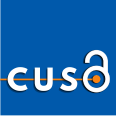Appel de textes: The Reward System of Science pour Aslib Journal of Information Management
Adèle Paul-Hus et Nadine Desrochers (Université de Montréal), Sarah de Rijcke et Alex Rushforth (Leiden University) dirigent un numéro spécial d’Aslib Journal of Information Management ayant pour thème « The Reward System of Science ».
Pour tous les détails, veuillez-vous référer à l’appel de textes ci-dessous:
The Reward System of Science
Special issue call for papers from Aslib Journal of Information Management
This special issue, to be published in 2017, is guest edited by Adèle Paul-Hus and Nadine Desrochers, University of Montreal, and Sarah de Rijcke and Alex Rushforth, Leiden University.
What is the focus of this special issue?
The transformations of scholarly communication and sharing of results have led to important modifications in the landscape of scientific recognition in the last decades. Hyperauthorship, the inflation of author numbers, continues to reach new heights, bringing new debates around the concepts of scientific credit, responsibility, and accountability. Questions regarding scientific signature in terms of “who did what” and who should get his or her name in the byline (or be thanked in the acknowledgements section) have led to changes in editorial policies and requirements for contributorship statements from certain journals. Citations and derived indicators are now being ubiquitously used to promote publications and evaluate researchers. Moreover, ongoing research on other paratextual elements, such as acknowledgements, has not yet yielded clear answers as to their role and value in researchers’ evaluations.
New sets of usage metrics have emerged from social media activities in the context of scholarly communication; commonly coined as “altmetrics”, social media metrics comprise a range of indicators based on the measurement of online activity. However, their heterogeneity has generated discussions regarding their meaning and value in the reward system of science. It goes without saying that this changing and complex—not to mention pressure-filled—landscape has a direct effect on the behavior and choices made by researchers. Researchers are being pulled in different directions by the changing practices of scholarly communication and publication, the multiplication of metrics, and new incentives to produce societally relevant research. Therefore, a discussion around the effects of indicators and the system they are shaping is both necessary and timely.
For this special issue, we invite quantitative, qualitative, mixed methods, and theoretical research papers focusing on the various elements of the reward system of science. Papers may also discuss how these elements combine, the tensions inherent to the accumulation of credit, and measures of a scholar’s “value” or “worth”. Potential topics include but are not limited to:
- Credit distribution in science: authorship, contributorship, acknowledgements, etc.
- Disciplinary differences in credit distribution
- Disciplinary differences in research evaluation
- Disciplinary differences in researchers’ careers
- The challenges of measuring interdisciplinary research
- The ethics of credit distribution in science
- Editorial policies and disciplinary guidelines in credit distribution
- The relationship between research funding, scientific activities, and research practices
- The relationship between scientific activities, research outputs, and the indicators used to measure them
- The roles and influences of citations and derived indicators on scientific activities and research practices
- The relationship between social media presence, acts, and scientific activity or evaluation
- Social media policies in the scientific field
- Gaming or abuse of bibliometrics and/or social media metrics
- The ethics of bibliometrics and/or social media metrics
- Existing and changing relationships between bibliometrics and peer review
Submissions
Papers should focus on the reward system of science and one or many of its various constitutive elements. All methodological approaches are welcome. Case studies and proof-of-concept studies should present new and unique findings and highlight future research possibilities and developments. Opinion pieces will not be considered for the special issue.
Papers should be 4,000 to 9,000 words in length (including references) and in accordance with the journal’s author guidelines.
Submissions to Aslib Journal of Information Management are made using ScholarOne Manuscripts, the online submission and peer review system. Registration and access is available here. Full information and guidance on using ScholarOne Manuscripts is available at the Emerald ScholarOne Manuscripts Support Centre.
For all additional information prior to submission, please contact Adèle Paul-Hus (adele.paul-hus@umontreal.ca).
About the Journal
Aslib Journal of Information Management (AJIM; previously: Aslib Proceedings, ISSN: 2050-3806) is a peer-reviewed international journal providing key insights into the latest international developments in the research and practice of information management and information science.
Schedule dates and submission deadlines
Paper submission: 15 December, 2016
Paper submission: 9 January, 2017
Notice of review results: 15 February, 2017
Revisions due: 15 March, 2017
Publication: Aslib Journal of Information Management, volume 69, issue 4, 2017 (August 2017)
Ce contenu a été mis à jour le 6 décembre 2016 à 8 h 11 min.

Commentaires